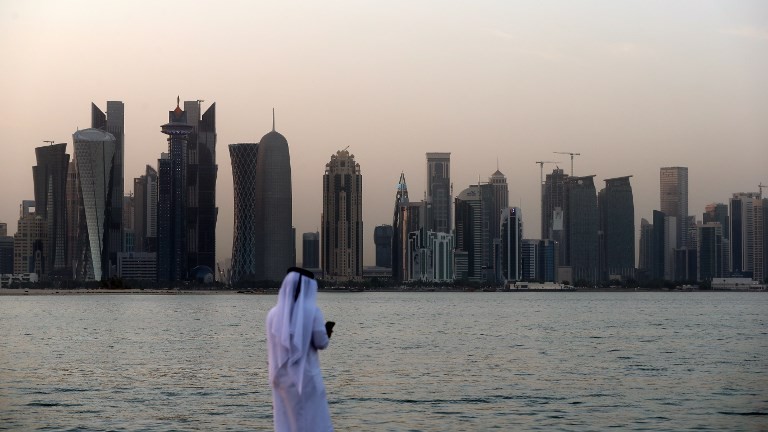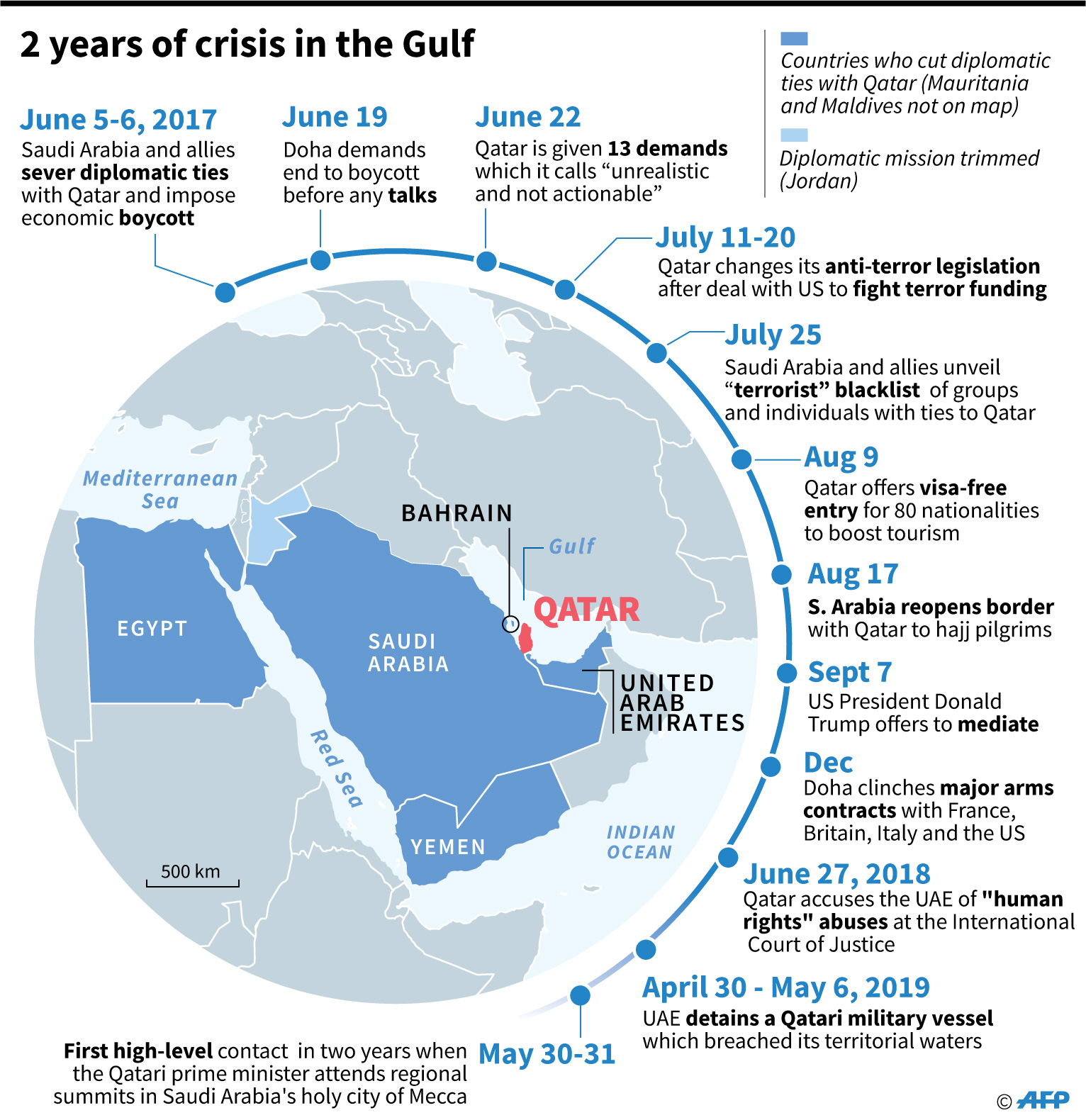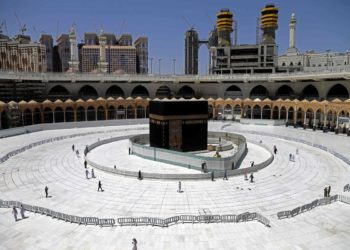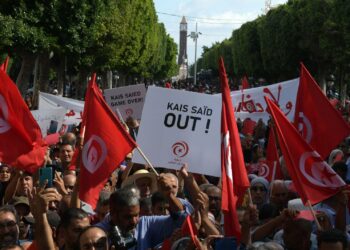Not so long ago, the quickest means to resolve a dispute between two sovereign states was going to war. This form of intervention has lost favor in the 21st century, but that does not mean that we live in a world of perfect harmony. Disputes between states abound, so how do states respond to antagonism involving other states?
The conventional armed confrontation is now replaced by a popular strategy called blockade. If a given aggrieved political entity has the necessary clout in the international community and is reasonably powerful over its adversary, it can bring the latter to its knees without firing a single bullet. Blockade or forced isolation involves a diplomatic, military, and economic component.
Currently, this strategy is in full swing in three cases. The hapless countries that have found themselves at the receiving end are the perpetual problem state North Korea, the ever-defiant Iran, and the enormously wealthy microstate of Qatar.
Blockade of Qatar
Of these three, Qatar is a curious case. The Gulf State has been experiencing strategic blockade since 2017. While this isolation has not impaired Qatar’s ability to function effectively, the country nonetheless feels it has the moral obligation to stand up against those who it considers bullies.
In June 2017, Bahrain, Egypt, Saudi Arabia, and the United Arab Emirates imposed a land, air, and sea blockade on Qatar. The aim was to completely cut off ties with Doha and isolate the country regionally and internationally. This was surprising given that those imposing the blockade shared the same religious, linguistic, and ethnic identity with their adversary.
So, what promoted these four Arab nations to go down the extreme path of blockade? What crimes did Qatar commit that prompted such drastic diplomatic measures? The blockading states claim Qatar’s regime is responsible for promoting “terrorism” and “destabilizing the region.” These allegations are partly fueled by Qatar’s closeness to the Shii’a state of Iran, which is considered a threat to the hegemony of Sunni Saudi Arabia and its allies.
And then there is the issue of Qatar’s sponsorship of the powerful media outlet Al Jazeera. Needless to say, this institution has been singularly responsible for bringing about a seismic transformation in the nature of governance in the region by exposing all sorts of irregularities and political taboos in the murky world of Middle Eastern politics.
Put simply, microstate Qatar, with 2.7 million inhabitants, punches well above its weight in regional and international politics.
Fissures in the Middle East
The Qatar debacle has created deep fissures in the region. The direct fall out of this is the level of mistrust that pervades various Middle Eastern states in their bilateral and multilateral relations. Interestingly, more states in the region have stood by Qatar than those who have called quits against this small country with a big personality.
The regime in Doha has always denied allegations of wrongdoing. Following its isolation by the heavyweights in the Gulf Cooperation Council, Qatar successfully spearheaded a campaign which saw some members of the Group actually refusing to follow the suit brought forward by Saudi Arabia.
The blockade allowed Qatar’s regime to engage in massive economic charm offensives in the region and managed to win over new regional powers such as Turkey. Doha also weathered criticism or any possible fallout at the international level by pursuing a vigorous diplomatic campaign, which highlighted that the country has been simply maligned by devious powers and regimes in the region.
Blessing in Disguise
Two years down the line, people on the streets of Qatar argue that the blockade was a blessing in disguise. The isolation brought the Qataris together and infused in them a spirit of national fervor never seen before.
It has also shaken up the internal market conditions. The country is gradually moving away from an immediate dependency on neighbors to a market economy where there is greater reliance on self-sufficiency. Qatar is also energetically opening up new economic linkages with far away powers and economies.
Now, what have the blockading nations achieved in the last two years? In spite of their high-profile campaigns against Qatar, they have not succeeded in generating an international political or diplomatic narrative against the regime in Doha.
If anything, they have lost a critical mass of goodwill within the Arab world and beyond. If anything, with their obtuse stand against Doha, they have unwittingly strengthened the position of Iran and Turkey, the new big players of the great game in the Middle East.
Yet, the true test for the Saudi Arabia-led blockade will be felt in 2022 when Qatar hosts the FIFA World Cup. Both Egypt and Saudi Arabia have competing national football teams. Would they boycott the World Cup as well? Or would their leadership turn around and swallow their pride and embrace the Emir of Qatar in the spirit of let bygones be bygones?
Disclaimer: The views and opinions expressed here are those of the author and do not necessarily reflect the editorial position of The Globe Post.






















